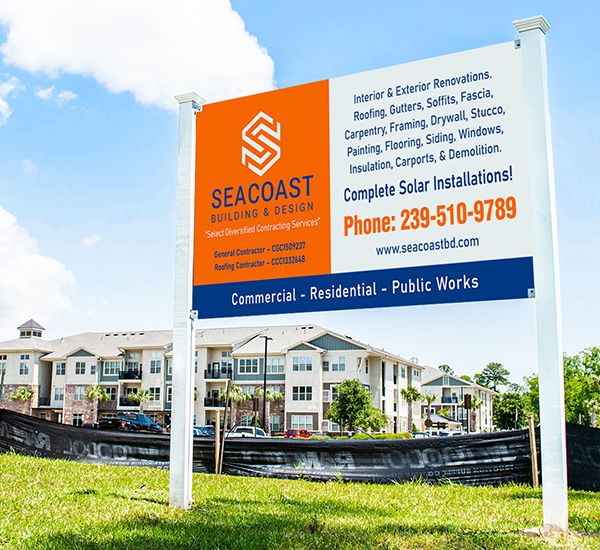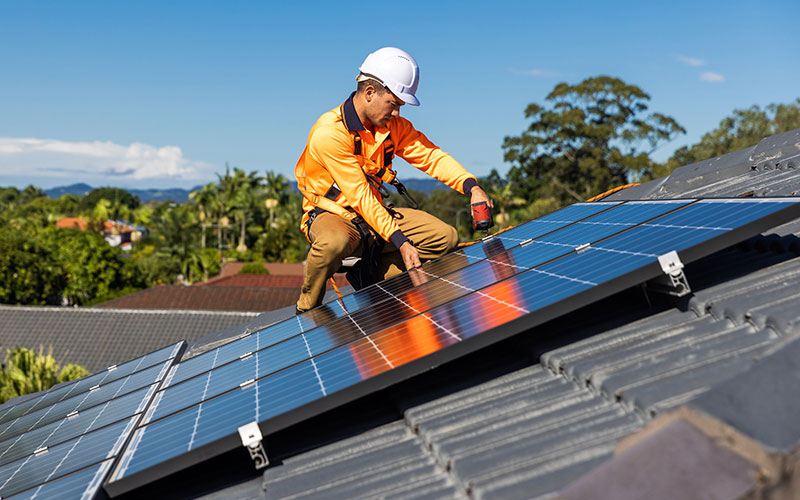February 25, 2024
Are Solar Panels Worth It
As environmental consciousness rises, integrating solar panels into home and business HVAC systems offers a beacon of clean, renewable energy. Harnessing the sun’s power reduces carbon footprints and provides a cost-effective alternative to traditional energy. This post examines the many benefits of solar power for your home or business and offers practical guidance before investing in a solar system.
Cost Savings
Installing solar panels can lead to substantial long-term savings on your energy bills. By generating your own electricity, you can reduce or even eliminate reliance on the traditional power grid. Over time, the upfront investment in solar technology is recouped through lower monthly energy costs. Depending on your area’s electricity costs, you could save between $28,000 and $120,000 over the lifetime of your solar panel system.
Environmental Impact
Harnessing the power of the sun through solar panels offers a clean, renewable energy source that generates electricity without harmful emissions. By choosing solar-powered HVAC, you can dramatically reduce your carbon footprint, supporting the global fight against climate change. This environmentally conscious choice aligns with the rising demand for sustainable living practices.
Energy Independence
Solar panels empower homeowners by making them producers, rather than just consumers, of their own electricity. This self-generated power supply can be especially valuable during periods of high energy demand or power outages, providing a reliable source of electricity to run essential home systems like HVAC.
Increased Property Value
Solar-powered homes tend to have higher property values, as more home buyers recognize the long-term cost savings and environmental advantages of solar energy. This increased demand makes solar-equipped homes more desirable in the real estate market. “There’s been a lot of academic studies that have shown how it increases your property values,” Gilbert Michaud, a professor at Loyola University Chicago said. “You can actually sell your house for ten-, twenty-, thirty-thousand dollars more.”
Government Incentives
Many states provide a range of incentives to promote the adoption of solar technology. These incentives may include tax credits, rebates, and other financial benefits that can substantially offset the upfront cost of installing solar panels. By researching and utilizing these programs, homeowners and businesses can make solar energy a more economically attractive option.
In 2022, when Congress passed the Inflation Reduction Act, it boosted the solar investment tax credit to 30% and extended it through 2032. (It phases out by 2035.) This federal residential clean energy credit covers 30% of the total installed cost of a solar panel system.
Low Maintenance Requirements
Renowned for their durability and minimal maintenance needs, solar panels require little more than routine cleaning and occasional checks for debris or shading to maintain optimal performance. With no moving parts, the risk of mechanical failure is negligible.
Long-Term Investment
The upfront cost of installing solar panels may be substantial although Seacoast Building & Design can provide a zero-cost solution (See Here). It’s important to consider it a long-term investment. Over the system’s lifetime, homeowners can recover their initial outlay through energy savings and available incentives, ultimately making solar panels a financially prudent choice.
Considerations Before Investing in Solar
Energy Consumption Assessment
To ensure your solar panel system meets your home or business energy needs, first conduct a comprehensive assessment of your electricity consumption. Analyze the power requirements of your HVAC unit, appliances, and other electrical devices. This will allow you to determine the optimal size and capacity for your solar panel installation.
Local Climate and Sunlight Availability
To maximize the efficiency of solar panels, it’s important to assess the available sunlight in your immediate area. While solar panels can still function with occasional cloud cover, they perform optimally in regions with abundant, consistent sunlight. When evaluating a potential solar installation site, be sure to consider any potential shading from nearby buildings, trees, or other obstacles that could diminish your system’s productivity.
Roof Suitability
Before installing solar panels, thoroughly inspect your roof’s condition and orientation. The roof must be structurally sound to support the additional weight of the panels. Furthermore, the roof’s direction and tilt are key factors in maximizing solar exposure. South-facing roofs with a gentle slope are often the most suitable for solar panel installation.
Regulatory and HOA Considerations
Before installing solar panels, review your local municipal and homeowners’ association (HOA) guidelines, as some areas have specific regulations or requirements, such as aesthetic standards. Understanding these rules upfront can help you navigate the permitting process more efficiently.
Budget and Financing Options
To make a solar panel installation financially viable, first determine your budget by weighing the upfront costs against the potential long-term savings. Then, explore your financing options, such as government incentives and available rebates, which can help offset the initial investment. Many governments offer these incentives specifically to encourage the adoption of solar technology. See Seacoast Building & Design’s solution HERE.
Quality of Solar Panels and Components
When investing in solar energy, prioritize high-quality panels and components from reputable manufacturers that meet industry standards. Although it may be tempting to cut costs, choosing quality over cheap options will ensure better efficiency, durability, and long-term performance from your solar system.
Future Home Improvements
When planning any major home or business improvements or renovations in the near future, be sure to discuss your plans with Seacoast Building & Design. Significant changes to your structure could impact the efficiency and placement of your solar panels. By collaborating with your preferred installer, you can ensure your solar system can be easily adapted to accommodate these future modifications.
System Monitoring and Warranty
When installing a solar panel system, ask Seacoast about performance monitoring systems to track its efficiency. Additionally, thoroughly review the manufacturer and installer warranties, as robust coverage can provide peace of mind and support in case of unexpected issues
Energy Storage Solutions
Consider integrating energy storage solutions like solar batteries into your system. This allows you to store excess electricity generated during peak sunlight hours and use it during low-light periods or power outages, enhancing your energy security.
When Will Solar Pay Off?
Just like investments accruing interest over the years, solar panels on your property extract value over time. Because they create something valuable — electricity — each time the sun rises in the sky, which it does pretty reliably, it’s relatively easy to estimate their worth. While it depends on local energy prices, available sunlight, and your own energy use, a general rule of thumb is that most solar energy systems will pay for themselves after around a decade of use, typically giving you another decade or two to enjoy the benefit of free energy, though you should calculate your own potential payback period for yourself.
“Now is the best time,” said John Burke, director of the Maine Solar Energy Association.

Seacoast Building & Design
Office: (941) 500-5431
Hours of Operation:
Weekdays – 8 am to 6 pm
Saturday – 9 am to 3 pm
Or by Special Appointment.
Payment Methods:
Cash, Visa, Master Card, Amex, Discover, Invoice, Wire, ACH
Company Owners:
Clear & Chandra Dayland

